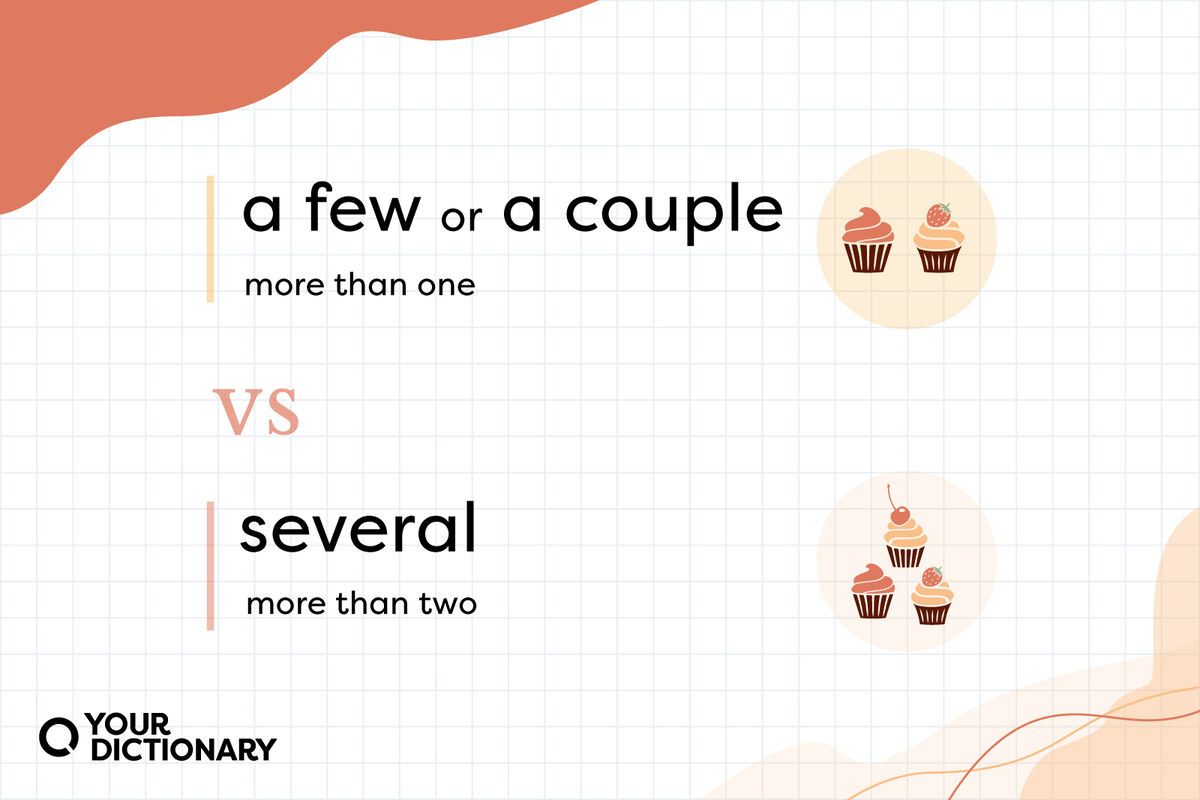
You texted your friend that you’d be there in a few minutes — so why are they mad that you showed up ten minutes later? To some, a few means “any small amount,” but to others, a few means “three exactly, and no more.” The difference is generally insignificant enough in writing, but try telling that to your impatient friend. So which should you use when you mean “more than none but less than a lot" — a few or a couple?
How Many Is “A Few”?
A few comes from the Old English feawe, meaning “not many” — which is what it means today, according to the Oxford English Dictionary (OED).
Typically, a few refers to “a low number, more than one,” which could include two or slightly more.
- There are a few problems with this plan. (More than one problem)
- We’ll be there in a few hours. (More than one hour)
- I had a few cupcakes after dinner. (More than one cupcake)
How Many Is “A Couple”?
Historically, couple (from the Latin copula, meaning “bond”) has been a noun with a strict meaning of “two.” Think of a married couple, which usually includes only two people. Even the OED defines couple as “that which unites two.” It basically means “a pair.”
However, the noun couple is a bit different from the determiner a couple (or, more commonly, a couple of), which usually means “around two” or “some.”
- There are a couple of problems with this plan.
- We’ll be there in a couple of hours.
- I had a couple of cupcakes after dinner.
When you say a couple of, you don’t literally mean “exactly two.” Essentially, a couple of and a few are synonymous when used as determiners — they mean the same thing (“around two; not very many”).
How Much Is “Several?”
The original meaning of several, from the Latin separalis (“able to be separated”) was “existing apart,” referring to each individual member of a group. In today’s English, several is a common determiner that means “more than two.”
- There are several problems with this plan. (More than two problems)
- We’ll be there in several hours. (More than two hours)
- I had several cupcakes after dinner. (More than two cupcakes)
Unlike a few or a couple, English speakers would not consider several to mean “two.” Several could be three, four, ten, or twelve.
So Which Is More: A Few, A Couple, or Several?
So where does several factor into the a few vs. a couple conversation? Several indicates that a number, while perhaps not very high, is higher than a few or a couple.
- I’ve visited a few countries. (More than one country)
- I’ve visited a couple countries. (More than one country)
- I’ve visited several countries. (Lots of countries)
- Mark knows a few languages. (More than one language)
- Mark knows a couple languages. (More than one language)
- Mark knows several languages. (Lots of languages)
- We had to fire a few people. (More than one person)
- We had to fire a couple people. (More than one person)
- We had to fire several people. (More than one person)
Don’t Be a Man of Few (Couple?) Words
The next time you promise your friend that you’ll be there in “a couple minutes,” they should not expect you in exactly 120 seconds — but that doesn’t mean you should be ten minutes late. (That would be “several minutes,” not “a couple.”) Keep your friendships healthy and happy with a guide to more commonly confusing words.